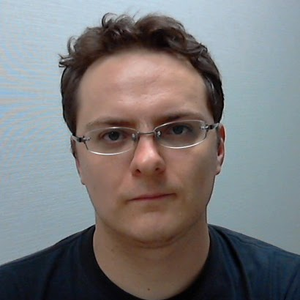Your comments
Hello,
I was just organizing the forum. Original question was in "Under review" status. I changed it to "Planned" to reflect that I already handled it and took your advice into consideration - will pay more attention to comparison with "double" in future.
(Software used for this forum allows to mark user requests/questions/ideas with different statuses: "Under review", "Answered", "Planned", "Started", "Completed", etc. Original question was posted in "Ideas" category. For ideas I can only set up "Planned", as there is no "Answered").
I was just organizing the forum. Original question was in "Under review" status. I changed it to "Planned" to reflect that I already handled it and took your advice into consideration - will pay more attention to comparison with "double" in future.
(Software used for this forum allows to mark user requests/questions/ideas with different statuses: "Under review", "Answered", "Planned", "Started", "Completed", etc. Original question was posted in "Ideas" category. For ideas I can only set up "Planned", as there is no "Answered").
Fixed version has been released. Please download it from our website.
Good one! Will release fixed toolbox asap.
Please use quadruple precision until then (where this works fine).
Thank you!
Please use quadruple precision until then (where this works fine).
Thank you!
New version with fix has been released (Windows). Please download it from our website.
Recently we have added new I/O features for easy exchange with other packages.
Export matrix to text file of simple format (all packages like Mathematica, Maple allow this):
Now you can load it with toolbox using the function:
Export matrix to text file of simple format (all packages like Mathematica, Maple allow this):
A11 A12 A13 ..... A1n .... Am1 Am2 Am3 ..... AmnEvery row is stored in one line, with space as an element separator.
Now you can load it with toolbox using the function:
function A = read_mp(filename)
%READ_MP Reads multiprecision matrix from a file
s = fileread(filename);
A = mp(strcat('[',s,']'));
end
Important note. Please store matrix elements in text file using higher number of decimal digits than you specify in Mathematica/Maple. This will make sure that numbers are correctly rounded and accuracy is not lost when converted back to numeric by toolbox.This bug has been fixed, updated version will be available in 1-2 hours after re-compilation.
Thank you for reporting the issue.
Thank you for reporting the issue.
Customer support service by UserEcho


We can offer you nice discount for such great help.
Contact me by e-mail (pavel@advanpix.com) if you are interested.
;)